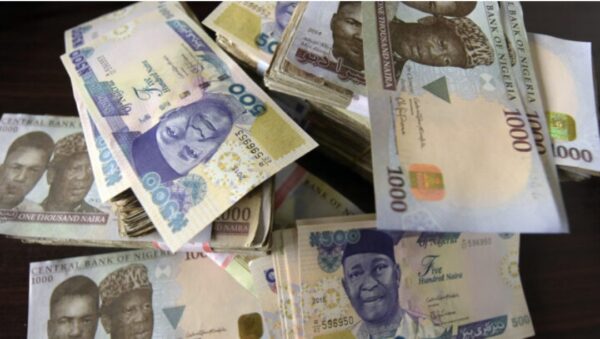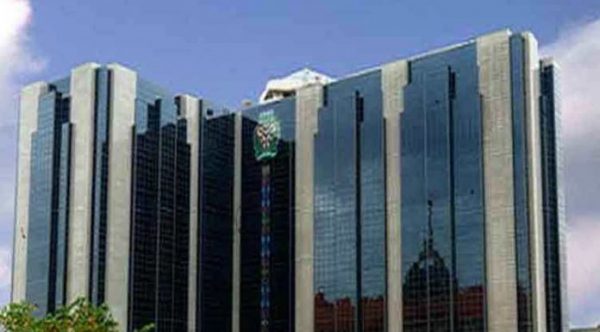Tough times ahead for states as FG insists on bailout repayment

• States will push the burden to citizens, says Ajibola
• Nigeria needs tough policy decisions, say economists
• Many states not generating enough
Like a repeat of the 2016 and 2018 era when many states were unable to pay salaries and the Federal Government also got financially strained from paying subsidies, a new rift is set to occur over plans by the Central Bank of Nigeria (CBN) to recover N614 billion budget support facility (BSF) advanced to states, amid dwindling revenues and continued payment of subsidies on fuel and electricity.
The Federal Government, which had earlier planned to recover the funds in 2019 before the pandemic, now hopes to start deductions from states for repayment of the budget support facility next month, amid already strained relationship from deficit financing, shortfalls in its Federation Accounts Allocation Committee (FAAC) and its inability to sustain subsidy payments.
If the deductions commence, many states, who were unable to increase their internally generated revenues, according to the latest data from the National Bureau of Statistics (NBS) as a result of the pandemic, may begin to default in payment of salaries, reflecting a repeat of 2016 where nearly two-thirds of the 36 states struggled to pay civil servants’ salaries despite receiving a government bailout.
With the Federal Government affirming the fragility of the economy, especially in terms of low revenues, there are concerns as regards available policy choices without recourse to social unrest, especially now that the government is unable to sustain fuel subsidy payments at a time many households are dealing with high unemployment and rising inflation.
Indeed, from increased borrowing to tax net expansion measures, alongside managing rising unemployment and a weakened currency, Nigeria’s economic managers are having a tough call in deciding the best policy options for economic survival and revival.
After having fewer revenues to share in March with a likely trend in the second quarter, the Minister of Finance, Budget and National Planning, Mrs. Zainab Ahmed, recently lamented over the country’s revenue challenges amid rising expenditures.
She explained: “In the month of March, we had a shortfall of FAAC that was about N50 billion; we didn’t have enough accrued in any of those accounts other than some N8.5 billion that we took from the exchange rate differential account so we added that and we ended up with the FAAC of N605 billion. An average FAAC that is healthy for us is N650 billion, so it means we had a shortfall of about N50 billion. The states to be honest wanted us to go and borrow from the Central Bank to augment FAAC.”
With the exception of the N130 billion tax receipt for 2020 from the Nigeria LNG that came in three months earlier than scheduled this month, aiding the shortfalls for April FAAC, shortfalls in revenue may be cushioned from the remaining savings before states begin to feel the impact of the BSF recall.
Though the Federal Government and the World Bank had discussed reforms to eliminate fuel and electricity subsidies in the country, The Guardian had reported the government’s plans to spend N720 billion for the next six months on Premium Motor Spirit (PMS) subsidy.
The IMF said in February this year that Nigeria had expressed strong commitment to avoid the return of fuel subsidy and also put an end to electricity tariff shortfalls by June this year, but the plan may not be realised over social unrest concerns and the inability of the governors to agree on subsidy removal.
Already, consumers of electricity and experts are reacting to the Nigerian Electricity Regulatory Commission (NERC) plans to effect a tariff review. In its notice issued April 26, 2021, NERC had stated: “This notice is issued to inform the general public and industry stakeholders of the commission’s intention to conclude the Extraordinary Tariff Review process for the 11 DisCos, commence the processes for the July 2021 Minor Review of MYTO – 2020 to consider changes in inflation, foreign exchange, gas prices, available generation capacity, and CAPEX required to evacuate and distribute the said available generation capacity in accordance with EPSRA and other extant industry rules.”
But an energy analyst, Dr Bala Zaka, stated: “Increasing the cost of basic infrastructure like electricity and burdening an already hungry, stretched and jobless set of citizens, can never lead to economic growth, liberation or freedom. Nigeria is a third-world country but people stylishly describe it as an emerging economy. It’s a pure lie; Nigeria is a very poor country with decayed infrastructures and a weak economy.”
Also, in a letter addressed to NERC, Mr. Kunle Olubiyo, President, Nigeria Consumer Protection Network, stated: “We are constrained to write you and crave your indulgence to calm down. The timing of another increase in electricity tariff in Nigeria is ill-advised and unacceptable to electricity consumers.”
Professor of Economics and former President/Chairman of Council of Chartered Institute of Bankers of Nigeria (CIBN), Segun Ajibola, expressed worry about the state of the economy of most states of the federation, describing it as still in tatters. According to him, even with the FG/CBN bailout facilities, most of the states are unable to pay salaries and allowances regularly and talk less of the provision of other services.
“The sudden withdrawal of the facilities or forced payback by states still under the pangs of COVID-19 would bounce on the welfare of the people and quite devastating for the citizenry already under the weight of galloping inflation and rising unemployment,” he added.
The Lagos Chamber of Commerce and Industry (LCCI) argued that accelerating the pace of recovery requires both fiscal and monetary policymakers to be well-coordinated in promoting growth-enhancing and confidence-building policies that would encourage private capital inflows into the economy.
LCCI President, Mrs Toki Mabogunje, reiterated the need for government at national and sub-national levels to intensify commitment towards creating a supportive and conducive investment environment to facilitate private sector involvement in the economic recovery process.
She added that deliberate efforts of policymakers towards addressing the numerous structural bottlenecks stifling the ease of doing business is critical, adding that this would complement fiscal and monetary policy support aimed at boosting growth.
On his part, the Director-General of the Nigeria Employers’ Consultative Association (NECA), Dr. Timothy Olawale, noted that the problems associated with federal aid to state government are numerous and include wasteful spending, bureaucracy, mismanagement, granting privileges to special interest groups, and a general lack of accountability.
While a subsidy may benefit the direct recipient, he explained that evaluating it in the light of dwindling revenues and a shrinking economy calls for prudence and a halt.
“At the moment bailout funds to states cannot be sustained. The common man has not been able to feel the impact of such intervention. The standard of living in many states is low and the poverty rate is alarming.
“Continuous federal aid to states can create a disincentive for state policymakers to prudently manage their own finances or undertake and implement necessary reforms. Federal money is not free, and the consequence of the federal government funding what it cannot sustain is not in the interest of the common man and the citizenry at large.”
In his reaction, Head of Macro Economy; EFG Hermes, Mohamed Abou Basha, stated that the government needs to take some tough decisions, namely increasing its ability to generate revenues from the non-oil economy – which represents c90% of the country’s GDP.
“They then need to redirect these raised revenues for targeted social payments while also increasing investment on infrastructure to attract investments and create jobs. There are no easy ways out here with the country accumulating structural problems over the past six years with little done to resolve those problems.
“Government has little choice but to tackle the country’s structural problems on both the fiscal, monetary and infrastructure side. It has so far chosen only to muddle through, yielding very limited positive impact for the economy






